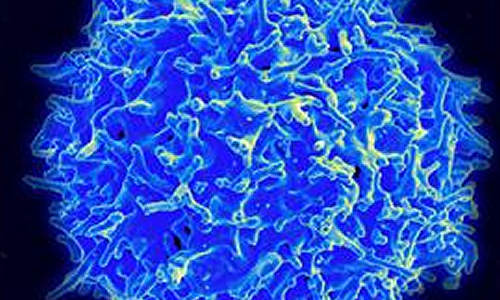Researchers at the European Bioinformatics Institute (EMBL-EBI) and the Wellcome Trust Sanger Institute have discovered that some immune cells turn themselves off by producing a steroid. The findings, published in Cell Reports, have implications for the study of cancers, autoimmune diseases and parasitic infections.This is the first time that scientists have been able to confirm that immune cells produce this steroid.
Photo Credit: the European Bioinformatics Institute (EMBL-EBI)
If you’ve ever used a steroid, for example cortisone cream on eczema, you’ll have seen first-hand how efficient steroids are at suppressing the immune response. Normally, when your body senses that immune cells have finished their job, it produces steroids –but which cells actually do that?
In this latest study, scientists looked at Th2 immune cells during parasitic infection and saw that at a certain point, these cells produce a steroid called pregnenolone.
“We were really surprised to see that these immune cells are producing a steroid. In cell culture, we see that the steroids play a part in regulating T cell proliferation,” says Bidesh Mahata in the Teichmann group at EMBL-EBI and Sanger, who designed the study. “We had already seen that T-helper cells were producing steroids, but initially we were blind – what was going on?”
“Because we had access to data from single-cell sequencing experiments, we could conduct deep statistical analyses on a very large and comprehensive dataset,” explains Sarah. “That pointed us to the genes involved in pregnenolone production at the point when Th2 cells are being produced, and we could deduce that the Th2 cells themselves were involved in immunosuppression.”
The researchers suggest that bringing the immune system back into balance is an intrinsic part of this particular immune response.
“We confirmed our findings experimentally, showing that pregnenolone inhibits both Th cell proliferation and B cell immunoglobulin class switching,” adds Bidesh. “We think this points to the idea that Th2 cells differentiate into steroid-producing cells as part of a larger mechanism to bring the immune system back into balance.”
Story Source:
The above story is based on materials provided by European Bioinformatics Institute EMBL-EBI.





